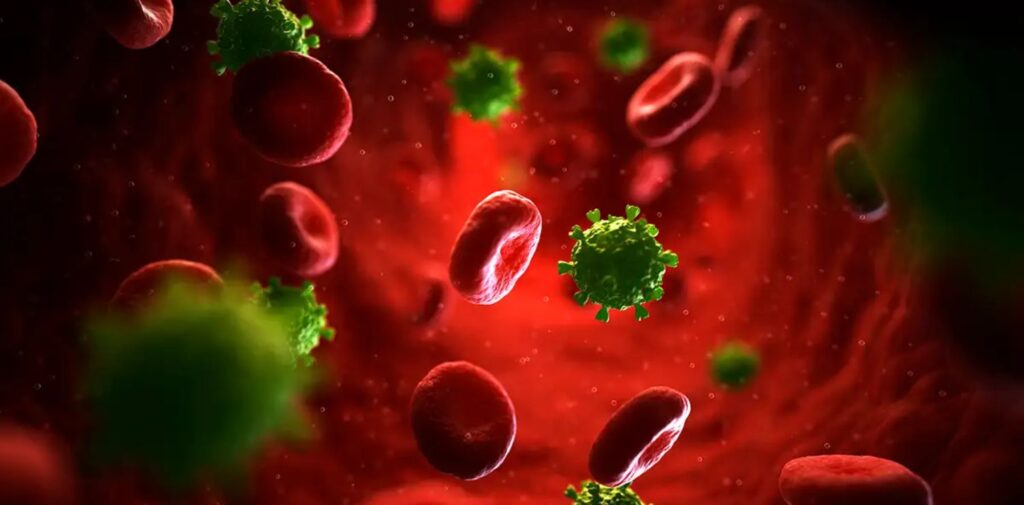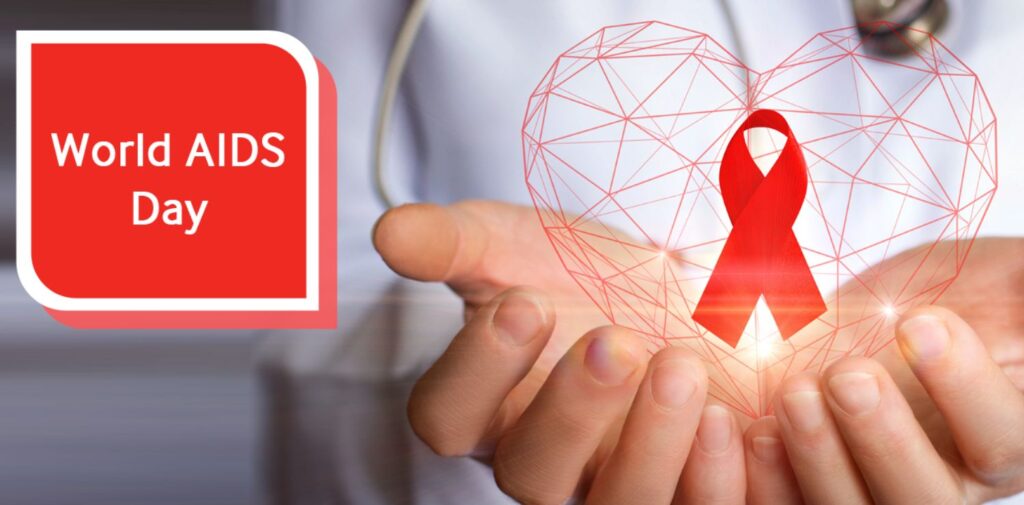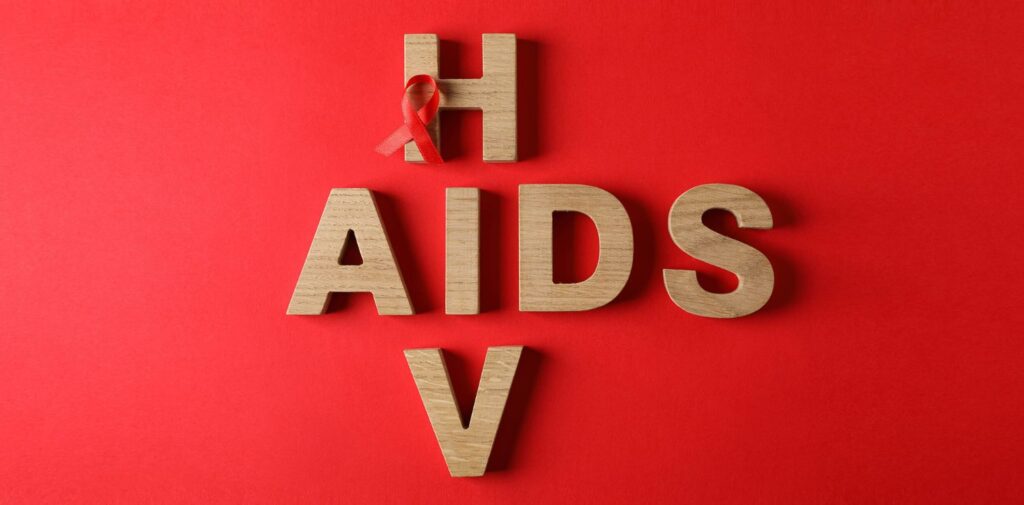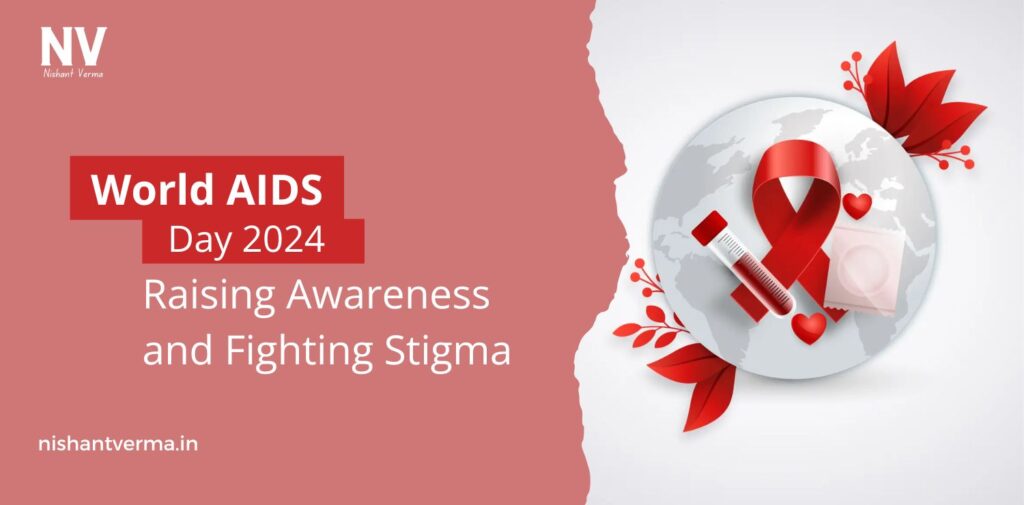World AIDS Day is observed every year on December 1st. This special day is a time for people worldwide to come together to show support for those living with HIV, remember those who have passed away due to AIDS-related illnesses, and raise awareness about the ongoing fight against the HIV/AIDS epidemic.
As the world continues to battle the disease, World AIDS Day 2024 serves as a reminder that while there have been many advancements in treatment and awareness, there is still a long way to go to fully overcome the challenges of HIV/AIDS.
What is AIDS?
To understand why World AIDS Day is important, we first need to know what HIV and AIDS are.
- HIV stands for Human Immunodeficiency Virus. It is a virus that attacks the immune system, which is the body’s defense against infections. When HIV enters the body, it weakens the immune system, making it difficult for the body to fight off diseases and infections.
- AIDS stands for Acquired Immunodeficiency Syndrome. AIDS is the final stage of HIV infection. Not everyone who has HIV will develop AIDS, especially if they get treatment. But without treatment, HIV can progress to AIDS, which is when the immune system is severely damaged, and the body becomes very vulnerable to infections and cancers.
There is no cure for HIV, but it can be managed with proper medical care. Thanks to modern medicine, people with HIV can live long and healthy lives if they follow their treatment plan. Antiretroviral therapy (ART) is the main treatment for HIV, and it helps lower the amount of virus in the body, preventing it from spreading and reducing the chances of developing AIDS.

The Importance of World AIDS Day
World AIDS Day was first observed in 1988, and it has since become one of the most important days to raise awareness about HIV/AIDS. The day is used to remind people that HIV/AIDS is still a global health issue, even though many countries have made significant progress in fighting it.
Here are some of the key reasons why World AIDS Day is so important:
- Raising Awareness: Many people still do not understand how HIV is spread, how it can be prevented, or how it can be treated. World AIDS Day helps raise awareness about these important issues. It’s an opportunity to inform people about the ways HIV is transmitted (through unprotected sex, sharing needles, etc.) and how it can be prevented (using condoms, getting tested, etc.).
- Fighting Stigma and Discrimination: One of the biggest challenges people living with HIV face is the stigma and discrimination that comes with it. Many people with HIV are treated unfairly because of their condition. They may face rejection from friends, family, and even their communities. World AIDS Day helps fight this stigma by showing that HIV is just another health issue that anyone can face, regardless of age, gender, or background.
- Honoring Those Who Have Died: Since the HIV/AIDS epidemic began, millions of people around the world have lost their lives. World AIDS Day is a time to remember those who have died and honor their memory. It is a reminder of the ongoing fight against HIV/AIDS and the need to continue working toward a world where fewer people are affected by this disease.
- Supporting People Living with HIV: For people living with HIV, World AIDS Day is a reminder that they are not alone. It is a day to show support and solidarity for those who are living with the virus. Many events, fundraisers, and activities take place on this day to raise money and awareness for the people who need it most.
- Highlighting Progress and Challenges: World AIDS Day also serves as a time to reflect on the progress that has been made in fighting HIV/AIDS, as well as the challenges that remain. While there have been huge improvements in treatment, testing, and awareness, there are still many parts of the world where people cannot access proper treatment, and the stigma surrounding HIV/AIDS continues to persist.

What Has Been Achieved?
In the fight against HIV/AIDS, there have been many achievements over the past few decades:
- Access to Treatment: One of the biggest advancements has been the development of effective treatments for HIV. Antiretroviral drugs (ARVs) can now help people with HIV live long, healthy lives. These drugs have changed the course of the epidemic and have helped millions of people worldwide.
- Prevention Methods: There are now many ways to prevent the spread of HIV. One of the most effective methods is using condoms during sexual activity, which helps prevent HIV transmission. There is also pre-exposure prophylaxis (PrEP), a medication that people at high risk for HIV can take to prevent infection.
- Awareness and Education: Over the years, awareness campaigns have helped educate the public about HIV and how it is spread. People are now more aware of how to protect themselves and others from HIV.
- Support for People Living with HIV: Many organizations provide support to people living with HIV, offering counseling, resources, and help with accessing treatment. There is also more acceptance of people with HIV in many parts of the world.
- Global Cooperation: Governments, international organizations, and local communities are working together to fight HIV/AIDS. There have been significant investments in research, prevention, and treatment, and the global response to HIV has improved over time.
Challenges Still Facing the HIV/AIDS Fight
Even though there have been many positive changes, the fight against HIV/AIDS is not over. Here are some of the challenges that remain:
- Access to Treatment: While HIV treatment is available in many parts of the world, there are still areas where people cannot access the care they need. This is especially true in low-income countries, where health systems may be weaker, and resources are limited.
- Stigma and Discrimination: Stigma surrounding HIV continues to be a major problem. People with HIV are often judged or excluded from society. This can prevent people from getting tested or seeking treatment, which only makes the problem worse.
- New Infections: Despite progress, there are still new cases of HIV every day. Young people, especially those aged 15-24, are particularly vulnerable to HIV, and rates of infection are still high in many countries. Continued education and prevention efforts are needed to reduce these numbers.
- Inequality in Access to Healthcare: There are many groups who face greater challenges in accessing HIV treatment and prevention services. Women, children, LGBTQ+ individuals, and people who inject drugs are often the most at risk, and they face barriers to care because of discrimination, poverty, and lack of education.

How Can You Help?
While much work remains to be done in the fight against HIV/AIDS, there are many ways individuals can get involved and make a difference:
- Get Tested: The first step in fighting HIV is knowing your status. If you are sexually active, it’s important to get tested for HIV regularly. The earlier you know your status, the earlier you can start treatment if necessary.
- Educate Yourself and Others: Understanding how HIV is transmitted and how it can be prevented is key to reducing its spread. Share this information with your friends, family, and community to help raise awareness.
- Fight Stigma: One of the biggest barriers to tackling HIV is the stigma that people with HIV face. Be kind and supportive to those living with HIV, and stand up against discrimination wherever you see it.
- Support HIV/AIDS Organizations: Many organizations around the world are working to end the HIV epidemic. Donating time, money, or resources to these groups can make a big difference.
- Take Precautions: Practice safe sex, get vaccinated against other diseases like hepatitis B, and consider using PrEP if you’re at high risk of HIV. These actions can help prevent the spread of HIV.
Conclusion: World AIDS Day 2024
World AIDS Day 2024 is a reminder of how far we have come in the fight against HIV/AIDS, but it also highlights how much work still needs to be done. It’s a time to remember the millions of people affected by the disease, show support for those living with HIV, and continue working toward a world where no one has to suffer from this disease.
By coming together to raise awareness, fight stigma, and ensure that treatment and prevention are accessible to everyone, we can take important steps toward ending the HIV/AIDS epidemic for good.




